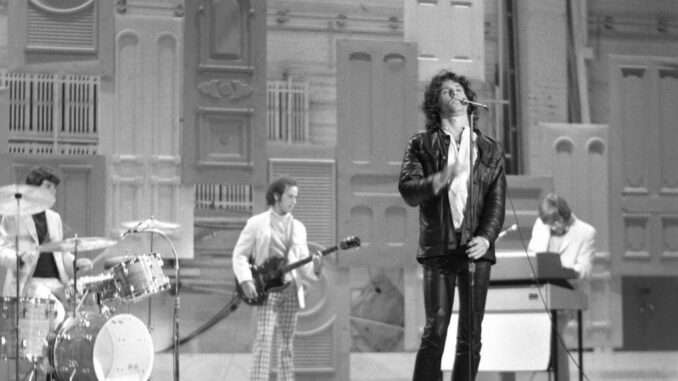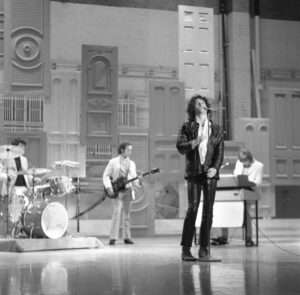
From Military Brat to Rock God: The Surprising Roots of Jim Morrison’s Rebellion
Jim Morrison, the enigmatic frontman of The Doors, is often remembered for his poetic lyrics, charismatic performances, and rebellious persona. As the iconic rock god of the 1960s, Morrison’s legacy is entwined with the counterculture movement, but few are aware that his journey to rock stardom began under the strict discipline of a military upbringing. The roots of his rebellion, the essence of his defiance, can be traced back to his childhood as the son of a career U.S. Navy officer.

Born on December 8, 1943, in Melbourne, Florida, Jim Morrison was thrust into a world shaped by the rigid structures of military life. His father, George Stephen Morrison, was a four-star admiral who commanded U.S. naval forces during the Vietnam War. Jim’s family relocated frequently, and as a child, he was exposed to a life of order and authority. This constant moving, from base to base, left young Jim feeling like an outsider, constantly detached from the traditional sense of home and community. The discipline and order of military life often clashed with Jim’s natural disposition—one that favored creativity, free thinking, and a yearning for individuality.
It was this tension between authority and self-expression that likely planted the seeds for Morrison’s future rebellion. The strictness of his upbringing may have helped shape his desire to break free from societal norms. The deep dissatisfaction he felt with the military environment, coupled with the uncertainty of moving from one place to another, gave rise to a sense of alienation and yearning for freedom. He famously later reflected on how his childhood experiences were marked by isolation, a sentiment that echoed throughout his music.
Morrison’s teenage years marked a turning point. After spending time at George Washington High School in Alexandria, Virginia, he went on to study at Florida State University and later transferred to the University of California, Los Angeles (UCLA), where he began to immerse himself in literature, philosophy, and the avant-garde. His deep interest in existentialism, poetry, and philosophy only intensified his dissatisfaction with conventional life, pushing him further away from the structured military lifestyle that had defined much of his early years.
By the time he formed The Doors in 1965, Jim Morrison had fully embraced the counterculture ethos. He rejected mainstream societal norms in favor of raw, uninhibited artistic expression. His lyrics, infused with existential themes and a yearning for liberation, became the soundtrack of a generation seeking to break free from the constrictions of tradition and conformity. The Doors’ music, like Morrison’s life, was an act of rebellion—a defiant rejection of authority, order, and convention.
In a sense, Morrison’s military upbringing didn’t stifle his creativity; it nurtured the very rebellion that would propel him into rock stardom. The discipline and structure imposed by his father were the perfect contrast to his inner world of chaos, imagination, and defiance. As he rose to fame, Morrison became the embodiment of rebellion—a symbol of youthful angst and an icon for those who longed for freedom, authenticity, and change. His journey from military brat to rock god was a testament to the power of rebellion and self-expression in the face of conformity.
Leave a Reply